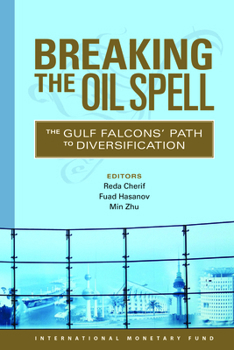Breaking the Oil Spell: The Gulf Falcons' Path to Diversification
Imagine a future in which oil is no longer the main source of energy in the world. Such a future is not cataclysmic-and is even brighter-for oil exporters, if they pursue true economic diversification. To achieve this, however, they must change the prevailing economic model. Despite the complex choices involved, it is paramount for oil-dependent economies to become innovative economies. In the past, countries such as Brazil, Korea, Malaysia, and Singapore have made major strides in diversifying their economies, and this book-edited by IMF Deputy Managing Director Min Zhu and IMF economists Reda Cherif and Fuad Hasanov-distills lessons from their experiences to help guide the Gulf countries today. Their stories reveal that incentives for firms and workers need to be realigned to develop technologically sophisticated export-oriented industries. More important, their stories show that standard growth policy prescriptions may not be enough and the task of changing incentives for firms and workers falls primarily on the shoulders of the state. Breaking the Oil Spell sheds light on what constitutes true economic diversification and the role of the state in achieving it. Ultimately, this book aims to demonstrate that the great aspirations of the people of the Gulf countries and other oil exporters can become a reality. Book jacket.
Format:Paperback
Language:English
ISBN:1513537865
ISBN13:9781513537863
Release Date:April 2016
Publisher:International Monetary Fund
Length:421 Pages
Weight:0.80 lbs.
Dimensions:0.6" x 5.9" x 9.0"
Customer Reviews
0 rating





